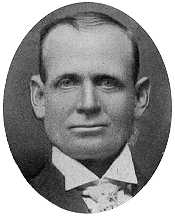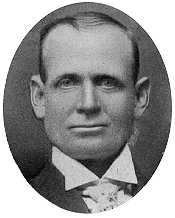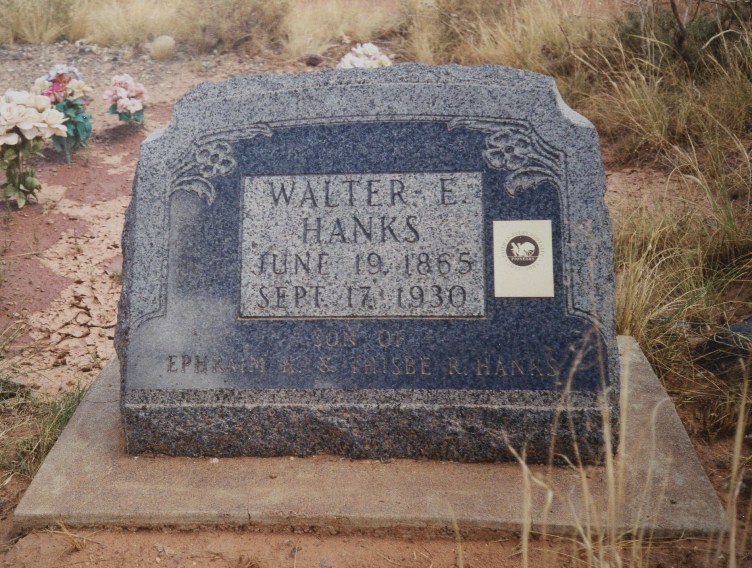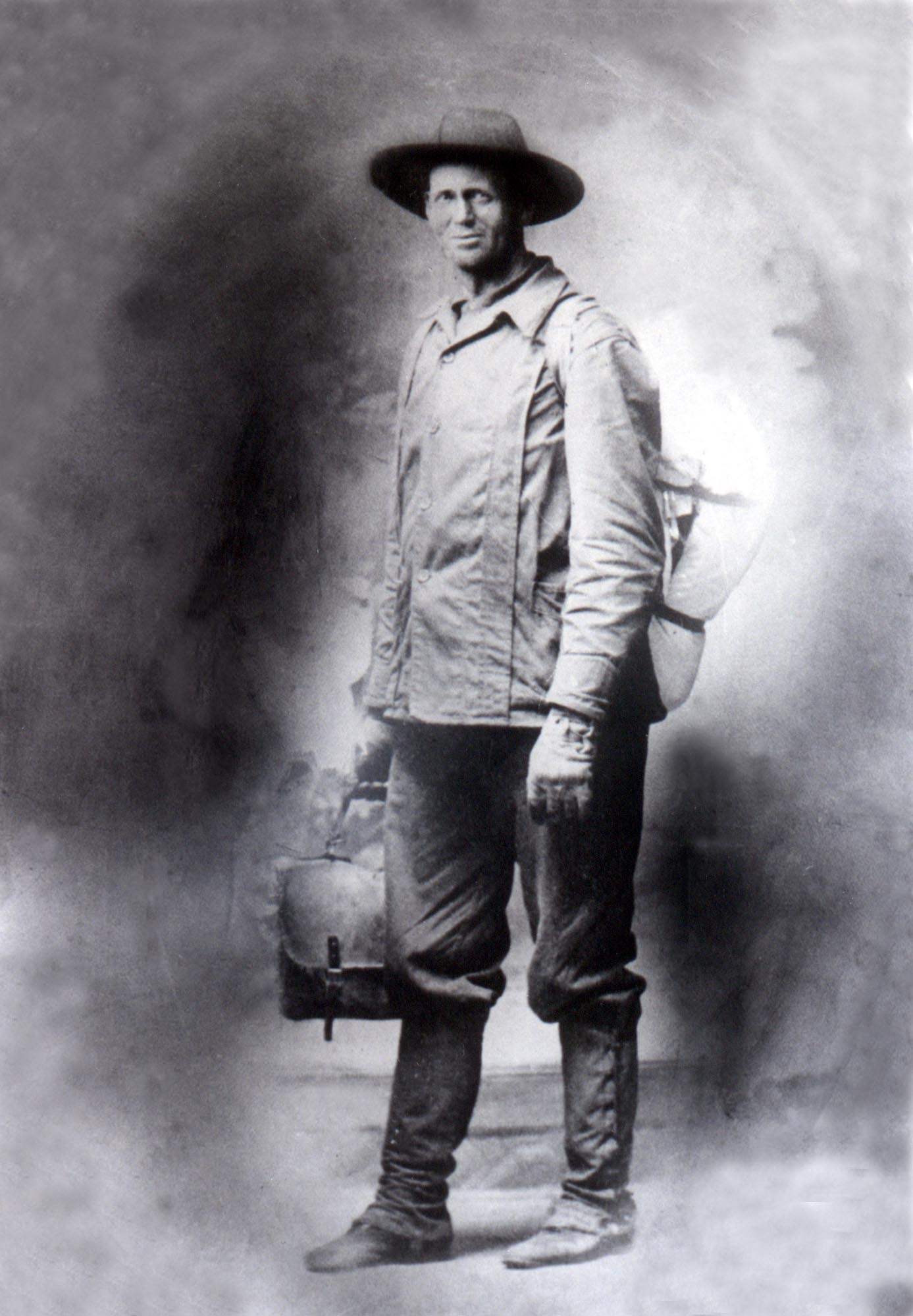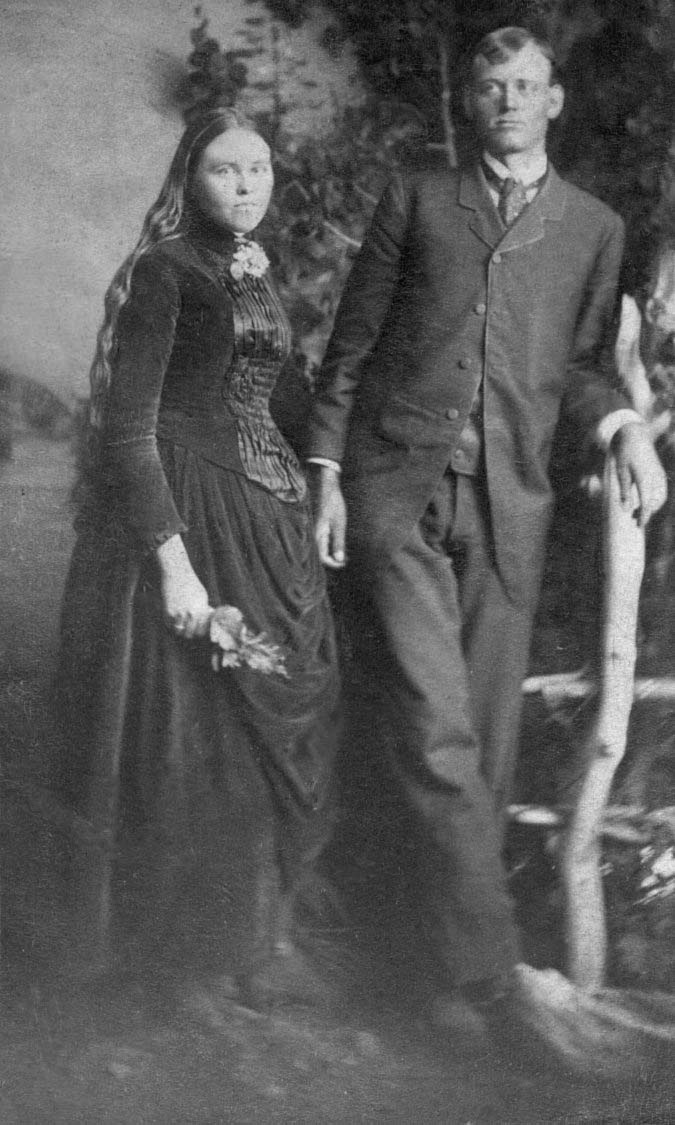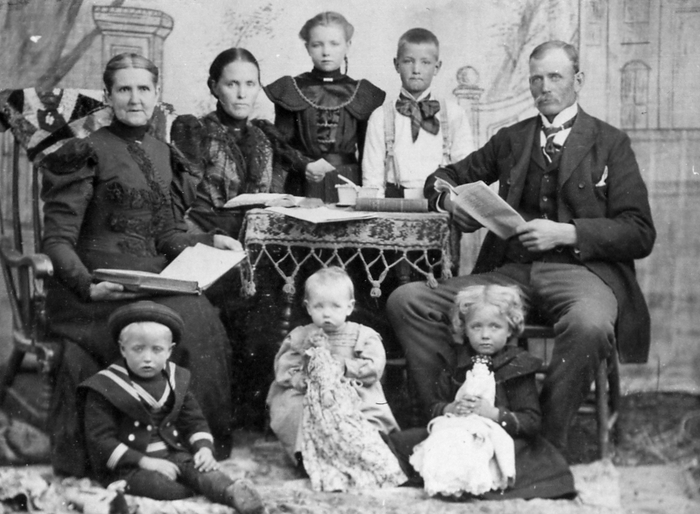Married - Mary Ellen Stewart, 15 Apr 1887, Logan, Cache, Utah
Children - Ellen Josephine Hanks; Walter Benjamin Hanks; Thisbe Alicia Hanks; Ephraim Knowlton Hanks; Edna Mary Hanks; Urban Van Hanks; Verd Arthur Hanks; Retta Arthella Hanks
History - Walter Ernest Hanks was born June 19, 1865 in Provo Valley, Utah. He was the son of Ephraim Knowlton Hanks and Thisbe Quilley Reed. When he was quite young the family moved up into the mountains near Park City end from there his father Ephraim was called by Brigham Young to move down on the Colorado River and operate Lees Ferry. After Ephraim had sold out and was ready to move south, the death of Brigham Young brought about some changes in plans. President John Taylor, who succeeded President Young, suggested that Ephraim move into southern Utah. So south they went to Burrville and then into Wayne County where they settled on Pleasant Creek at the mouth of a box canyon.
Walter resided successively in Salt Lake City, Park City, Burrville, Grass Valley, Pleasant Creek, Teasdale and Caineville. He has practically been a pioneer all his life and was with the first wagon that ran through Capital Wash in 1883. He also ran the first electric street car that made a regular trip in Salt Lake City, in 1889.
Walter Hanks principally followed farming and stock raising for a living and was for a number of years a forest ranger on the Aquarius Reserve.
It did not take long in their married life for Walter and Mary Ellen Hanks to become expert in handling life's problems. Walter as bishop of the Caineville Ward concentrated on his work to make a living for his ever increasing family. They prayed together and separately to have wisdom to raise their children to be a credit to the people of the earth. The Lord heard their prayers and blessed them abundantly. Mary Ellen carried on triple duty, taking care of the family, putting herself out to take care of the flock of saints and keeping up the home. Walter also carried on triple duty, doing his best to improve his job in the forest, riding hard Saturday night some 20 miles to be at his church on Sunday, and taking care of his two beautiful orchards plus the many side jobs to keep his flock happy.
The children pitched in with all their might, pushing always for success. We were on the go at daylight or before, and it was dark or later before we hung up our hats for the night. Perhaps that is one reason, along with the wisdom of our parents that the good habits jelled.
The boys took their turns clearing the table and washing the dishes when there were not enough girls at home. Mary Ellen, bless her golden heart, was overworked. Those thickened milk suppers were a wonderful reward after a hard day's work. Walter and Mary Ellen never had time to sit under the apple tree and count their many blessings. They were too busy helping their friends and enemies alike.
Due to Walter's work as a ranger and trail builder, Mary Ellen was left alone to shoulder his work in the church as well as her work in caring for eight children. She had the road to travel alone the last days of her life but her intensity of purpose was so strong that she accomplished her goals and then some.
In 1909 Caineville suffered severely from the effects of a flood, after which Bishop Hanks moved to Grover, Wayne County, Utah.
Married - Mary Ellen Stewart, 15 Apr 1887, Logan, Cache, Utah
Children - Ellen Josephine Hanks; Walter Benjamin Hanks; Thisbe Alicia Hanks; Ephraim Knowlton Hanks; Edna Mary Hanks; Urban Van Hanks; Verd Arthur Hanks; Retta Arthella Hanks
History - Walter Ernest Hanks was born June 19, 1865 in Provo Valley, Utah. He was the son of Ephraim Knowlton Hanks and Thisbe Quilley Reed. When he was quite young the family moved up into the mountains near Park City end from there his father Ephraim was called by Brigham Young to move down on the Colorado River and operate Lees Ferry. After Ephraim had sold out and was ready to move south, the death of Brigham Young brought about some changes in plans. President John Taylor, who succeeded President Young, suggested that Ephraim move into southern Utah. So south they went to Burrville and then into Wayne County where they settled on Pleasant Creek at the mouth of a box canyon.
Walter resided successively in Salt Lake City, Park City, Burrville, Grass Valley, Pleasant Creek, Teasdale and Caineville. He has practically been a pioneer all his life and was with the first wagon that ran through Capital Wash in 1883. He also ran the first electric street car that made a regular trip in Salt Lake City, in 1889.
Walter Hanks principally followed farming and stock raising for a living and was for a number of years a forest ranger on the Aquarius Reserve.
It did not take long in their married life for Walter and Mary Ellen Hanks to become expert in handling life's problems. Walter as bishop of the Caineville Ward concentrated on his work to make a living for his ever increasing family. They prayed together and separately to have wisdom to raise their children to be a credit to the people of the earth. The Lord heard their prayers and blessed them abundantly. Mary Ellen carried on triple duty, taking care of the family, putting herself out to take care of the flock of saints and keeping up the home. Walter also carried on triple duty, doing his best to improve his job in the forest, riding hard Saturday night some 20 miles to be at his church on Sunday, and taking care of his two beautiful orchards plus the many side jobs to keep his flock happy.
The children pitched in with all their might, pushing always for success. We were on the go at daylight or before, and it was dark or later before we hung up our hats for the night. Perhaps that is one reason, along with the wisdom of our parents that the good habits jelled.
The boys took their turns clearing the table and washing the dishes when there were not enough girls at home. Mary Ellen, bless her golden heart, was overworked. Those thickened milk suppers were a wonderful reward after a hard day's work. Walter and Mary Ellen never had time to sit under the apple tree and count their many blessings. They were too busy helping their friends and enemies alike.
Due to Walter's work as a ranger and trail builder, Mary Ellen was left alone to shoulder his work in the church as well as her work in caring for eight children. She had the road to travel alone the last days of her life but her intensity of purpose was so strong that she accomplished her goals and then some.
In 1909 Caineville suffered severely from the effects of a flood, after which Bishop Hanks moved to Grover, Wayne County, Utah.
Family Members
-
![]()
Ella Mariam Hanks
1863–1864
-
![]()
Martha Georgina Hanks Allen
1867–1902
-
![]()
Amy Alicia Hanks Giles
1870–1935
-
![]()
Thisbe Hanks Allen
1872–1924
-
![]()
Knowlton Hanks
1874–1874
-
![]()
Sidney Alvarus Hanks
1875–1949
-
![]()
Raymond Elijah Hanks
1876–1910
-
![]()
Lillie Maria Hanks Ploeger
1879–1960
-
![]()
Arthur Eugene Hanks
1882–1963
-
![]()
Nettie May Hanks Giles
1884–1951
-
![]()
Clara Ellen Hanks Bodenhamer
1888–1969
-
![]()
Adelia Hanks Robinson
1846–1897
-
![]()
Ephraim Marcellus "Cell" Hanks
1849–1890
-
![]()
Marcia Amelia Hanks Hyde
1851–1939
-
![]()
Otis Alvarus Hanks
1853–1854
-
![]()
Harriet Page Wheeler "Hattie" Hanks Duboce
1856–1906
-
![]()
William Albert Capener Hanks
1858–1912
-
![]()
Clara Vilate Hanks Kimball
1859–1932
-
![]()
Charles Decker "Charlie" Hanks
1860–1922
-
![]()
Alice Maria Hanks McAffee
1861–1924
-
![]()
Sarah Elizabeth Hanks Brown
1863–1929
-
![]()
Perry Isaac Hanks Sr
1863–1892
-
![]()
Ephraim Knowlton Hanks
1865–1930
-
![]()
George Augustus Hanks
1868–1929
-
![]()
David Capener Hanks
1870–1932
-
Louisa Rebecca Hanks
1872–1931
Sponsored by Ancestry
Advertisement
Advertisement
